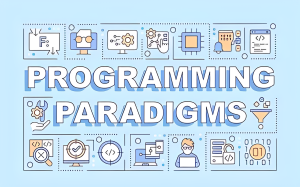In the vast realm of programming languages, there exists a paradigm that challenges the conventional methods of coding. Logic Programming, an elegant approach rooted in mathematical logic, revolutionizes the way developers think and create algorithms. It’s not fair a programming dialect; It could be a logic, a strategy of thinking that has given rise to a few of the progressed and cleverly applications we utilize nowadays.
What is Logic Programming?
Rationale Programming is based on the standards of formal rationale, where programs are characterized as a set of coherent connections. Unlike traditional imperative programming languages, which focus on how to achieve a certain goal, logic programming languages emphasize what the goal is. Prolog (Programming in Rationale) is one of the foremost well-known rationale programming languages, permitting designers to precise convoluted connections and rules in a brief and instinctive way.
The Magnificence of Revelatory Programming:
One of the key highlights of rationale programming is its revelatory nature. Developers define the relationships and rules, and the underlying engine takes care of the execution details. This reflection permits software engineers to center on the problem-solving angle instead of stressing around the complexities of the execution. It’s like describing the ‘what’ and letting the computer figure out the ‘how.’
Applications of Logic Programming:
Logic programming finds its applications in various fields, ranging from artificial intelligence and expert systems to natural language processing and database systems. Prolog, with its powerful pattern matching and inferential capabilities, has been instrumental in developing intelligent systems that is capable of mimic human reasoning and decision-making processes.
Creative Problem Solving:
The logic programming paradigm encourages creative problem-solving. Developers is capable of model real-world situations as logical relationships and solve intricate problems using elegant and concise code. This approach encourages thinking ‘outside the box’ and exploring innovative solutions to convoluted problems.
Challenges and Future Prospects:
While logic programming offers a unique approach to software development, it also comes with its challenges. Efficient execution and optimization of logic programs is capable of be intricate, especially when dealing with large-scale applications. However, ongoing research and advancements in the field are addressing these challenges, making logic programming even more powerful and versatile.
Conclusion:
Logic programming stands as a testament to the diverse and ever-evolving landscape of programming paradigms. Its rich approach to problem-solving, accentuation on revelatory programming, and imaginative potential make it a profitable device within the hands of talented engineers. As innovation proceeds to advance, rationale programming is balanced to play a vital role in forming long run of cleverly frameworks and applications, challenging the boundaries of what we will accomplish through code.
Within the world of programming, where advancement is the driving drive, rationale programming stands as a reference point of inventiveness and inventiveness, reminding us that there’s continuously more than one way to unravel a issue. So, the subsequently time you find yourself faced with a challenging problem, consider the elegance of logic programming—it might just be the key to unlocking new possibilities in your code.




